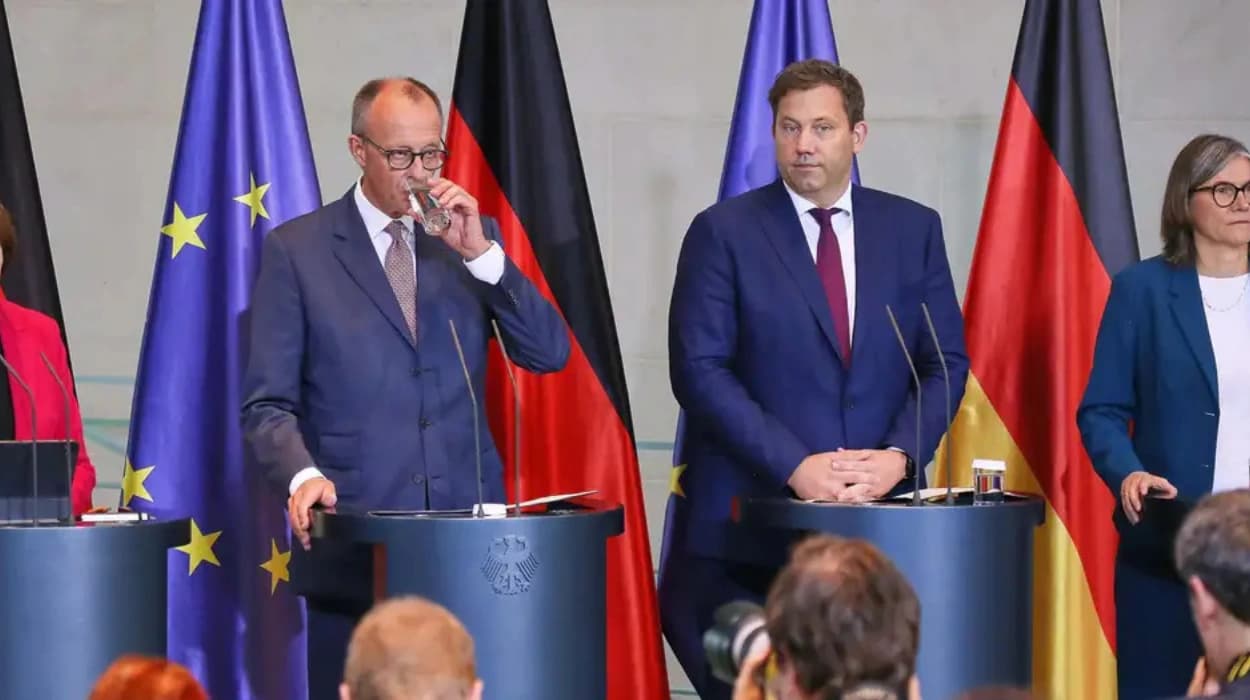German Chancellor Friedrich Merz
opposes the EU’s 2035 ban on new combustion cars, warning it risks jobs and
industry competitiveness across Europe.
Merz was speaking at a gathering that included top officials from Germany's faltering auto industry as well as other political figures.
"Such a hard cutoff in 2035 will not take place, if I have anything to do with it, and I will do all I can to achieve this,"
Merz said in Berlin.
As leading lawmakers and auto executives convened for the discussions on Wednesday, Greenpeace and Fridays for Future activists demonstrated outside the Berlin chancellery.
Lars Klingbeil, the Social Democrat deputy chancellor and the main spokesperson for Merz's junior coalition partner, has also indicated that he was open to alterations to the plans.
He specifically mentioned vehicles that use novel fuel blends, plugin hybrids, and so-called range extenders fuel-powered generators that supplement an electric motor and battery pack with a small portion of the fuel required to run a conventional engine.
Additionally, Merz and Klingbeil emphasized plans to maintain and increase incentives for owners of electric vehicles. Continuing road tax exemptions and a new incentive program aimed at lower-income auto buyers are among them. Electric cars are still more expensive than average, and the EU imposes high tariffs on the cheapest Chinese models.
Germany is rushing to attempt to support its well-known auto sector, which has been having trouble due to new trade barriers in the US and China, a decline in the demand for automobiles in Europe overall, and greater competition from China.
According to a recent report, the German auto industry lost over 50,000 jobs in 2024.
In 2022, the EU declared a goal to register no new vehicles that need gasoline by 2035. Numerous prominent figures in the industry have expressed skepticism regarding the proposal's viability.
Already, the EU was rushing to examine the policy idea, possibly in an attempt to reach a compromise.
With significant drawbacks including their range and recharge times, electric automobiles are still more costly than those powered by petroleum. Beyond that, there is still a lack of knowledge regarding longer-term concerns such as the actual lifespan of their battery packs, the cost of replacements, and the environmental costs associated with recycling or disposal.
In August of this year, they used incentive programs (such as those that will still be allowed in 2035) to increase their market share in Germany.
How are German automakers reacting to Merz's stance?
Companies such as Volkswagen, BMW,
and Mercedes-Benz believe there needs to be some flexibility in moving towards
EVs since EV sales growth is much lower than previously expected, and there is
fierce competition from Chinese players like BYD and Nio.
The sector believes the 2035 deadline penalizes German automotive manufacturers, as they are still working on competitive electric cars. Job creation and production are a concern, especially at this critical juncture.
Finally, the automakers are requesting new government incentives to stimulate demand for EVs, and to support advancements in other technologies including synthetic fuels and plug-in hybrid vehicles.
